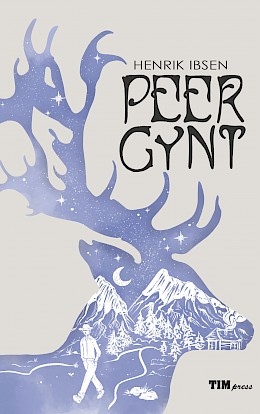Henrik Ibsen
Henrik Ibsen, Norwegian playwright (Skien, March 20, 1828 – Kristiania, today Oslo, May 23, 1906). After the commercial bankruptcy of a wealthy father, he became a pharmacist's assistant and studied medicine; he wanted to be a painter, but was soon won over by writing for the theater. He was a newspaper contributor, and from 1851 to 1862 a home author and director of theaters in Bergen and Christiania, which also failed. From 1864 to 1891 he lived abroad, in Rome, Dresden and Munich. Influenced by the Civil Revolution of 1848, he first wrote rebellious songs and the drama Catilina (1850), to continue with plays in the spirit of national romance and Nordic traditions (Olaf Liljecrans, 1857). He achieved success in a contemporary theme, the Comedy of Love (Kjærlinghedens komedie, 1862), in which he first stumbled upon a civil marriage convention; it was nationally confirmed by the historical drama Pretenders to the Throne (Kongs-Emnerne, 1863). His next pieces are „drama of ideas“: Brand (1866) and Peer Gynt (1867). The first deals with the consistency and life responsibility of the individual, and the second is one of the poetic masterpieces of European modern theater and literature in general. Ibsen’s next dramas opened up to a conscious critique of social circumstances, the obsolescence of traditional morality, and the hypocrisy in accepting religious principles. The condemnation of power and capital is brought in the drama Pillars of Society (Samfundets støtter, 1877), and the famous Nora or Puppet House (Et dukkehjem, 1879) resolutely advocates the right of women to their own life choices. The Ghosts deal with a similar problem (Gengangere, 1881), and the drama The Enemy of the People (En folkefiende, 1882) explicitly rises up against the tyranny of the majority as a democracy. Subsequently, under the influence of symbolism and modern understandings, Ibsen increasingly devoted himself to the psychology of his characters as a key element of life drama (Wild Duck – Vildanden, 1884; Rosmersholm, 1886). This increasingly leads him to strong poetic evocations, as in John Gabriel Borkman (1896) and When We the Dead Awaken (Når vi døde vågner, 1899), where thought and deed, dream and reality intertwine. For his stage messages, Ibsen found a language that the civic audience could accept as a critique, and with perfect dramaturgy he asked questions that are still relevant today. Ibsen's influence on the western theater of the 20th century is almost immeasurable and he lives until the appearance of the so-called of physical theater in the late 1960s, in which the authorial text would no longer have predominant force. As in the world, in the era of Croatian modernism Ibsen was the most performed foreign author, and his influence was recognized by I. Vojnović, M. Begović and M. Krleža. Other significant works: Alliance of Youth (De unges forbund, 1869), Woman from the Sea (Fruen fra havet, 1888), Hedda Gabler (1890) and others.
Image source: Wikipedia
